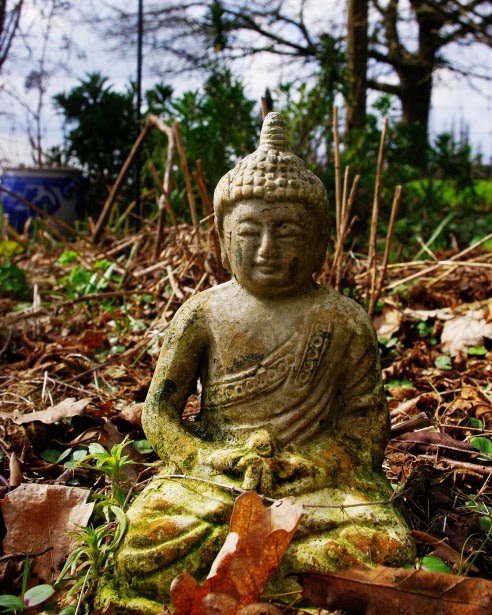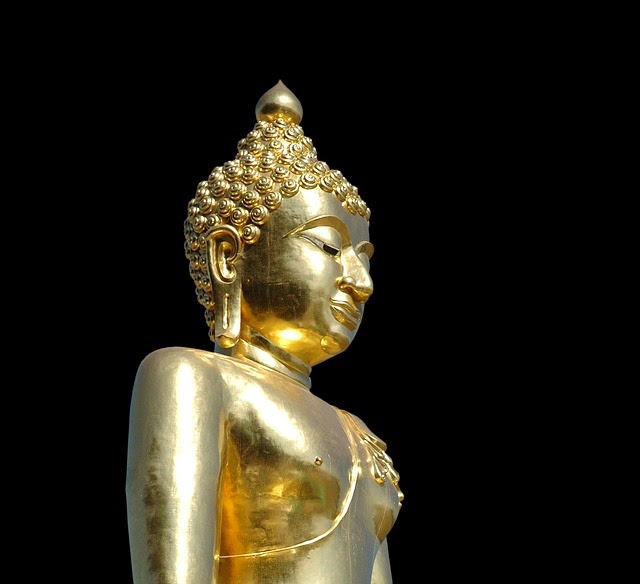PUNISHMENT.
To Find More Interesting Resources Click below :
|
129.All beings fear the rod, all fear to die;Regard them as thyself; strike not nor slay.
130.
All beings fear the rod; all love their life;
Regard them as thyself; strike not nor slay.
131.
Whoso treats pleasure-loving creatures ill,
When he seeks bliss for self he shall not find it.
132.
Whoso treats pleasure-loving creatures well,
When he seeks happiness for self shall find it.
133.
Use not harsh speech; when harshly spoken to
Men may retort; painful are quarrellings,
And punishment may follow thy harsh words.
To Find More Interesting Resources Click below :
All beings fear the rod; all love their life;
Regard them as thyself; strike not nor slay.
131.
Whoso treats pleasure-loving creatures ill,
When he seeks bliss for self he shall not find it.
132.
Whoso treats pleasure-loving creatures well,
When he seeks happiness for self shall find it.
133.
Use not harsh speech; when harshly spoken to
Men may retort; painful are quarrellings,
And punishment may follow thy harsh words.
To Find More Interesting Resources Click below :
|
134.
If thou can'st keep thy tongue from wagging oft,
Silent as some cracked gong, thou hast thereby
Nibbāna won; no brawling is in thee.
135.
As with a stick the herdsman drives his kine,
So death and age compel the lives of men.
136.
The fool in doing ill knows not his folly;
His own deeds, like a fire, the fool consume.
137.
He who offends the harmless innocent
Soon reaches one of these ten states of woe;
138.
Sharp pain, disease, or bodily decay,
Grievous disaster, or a mind distraught;
139.
Oppression by the king, or calumny,
Loss of relations, loss of all his wealth,
140.
His house burned by a thunderbolt or fire;
At death, poor fool, he finds rebirth in hell.
141.
Not nakedness, nor matted hair nor filth,
Not fasting long, nor lying on the ground,
Not dust and dirt, nor squatting on the heels.
Can cleanse the mortal that is full of doubt.
142.
But one that lives a calm and tranquil life,
Though gaily decked, if tamed, restrained, he live
Walking the holy path in righteousness,
Laying aside all harm to living things,
True mendicant, ascetic, Brāhmin he!
143.
Who in this world is so restrained by shame
That, like a thoroughbred flicked by the whip.
He can think lightly of the lash of blame?
144.
By faith and virtue, energy, and mind
In perfect balance, searching of the Norm,
Perfect in knowledge and good practices,
Perfect in concentration of your thoughts,
Ye shall strike off this multitude of woes.
145.
As cultivators guide the water-course,
As fletchers straighten out the arrow-shaft,
As carpenters warp timber to their needs,
So righteous men subdue and train themselves.
If thou can'st keep thy tongue from wagging oft,
Silent as some cracked gong, thou hast thereby
Nibbāna won; no brawling is in thee.
135.
As with a stick the herdsman drives his kine,
So death and age compel the lives of men.
136.
The fool in doing ill knows not his folly;
His own deeds, like a fire, the fool consume.
137.
He who offends the harmless innocent
Soon reaches one of these ten states of woe;
138.
Sharp pain, disease, or bodily decay,
Grievous disaster, or a mind distraught;
139.
Oppression by the king, or calumny,
Loss of relations, loss of all his wealth,
140.
His house burned by a thunderbolt or fire;
At death, poor fool, he finds rebirth in hell.
141.
Not nakedness, nor matted hair nor filth,
Not fasting long, nor lying on the ground,
Not dust and dirt, nor squatting on the heels.
Can cleanse the mortal that is full of doubt.
142.
But one that lives a calm and tranquil life,
Though gaily decked, if tamed, restrained, he live
Walking the holy path in righteousness,
Laying aside all harm to living things,
True mendicant, ascetic, Brāhmin he!
143.
Who in this world is so restrained by shame
That, like a thoroughbred flicked by the whip.
He can think lightly of the lash of blame?
144.
By faith and virtue, energy, and mind
In perfect balance, searching of the Norm,
Perfect in knowledge and good practices,
Perfect in concentration of your thoughts,
Ye shall strike off this multitude of woes.
145.
As cultivators guide the water-course,
As fletchers straighten out the arrow-shaft,
As carpenters warp timber to their needs,
So righteous men subdue and train themselves.


















